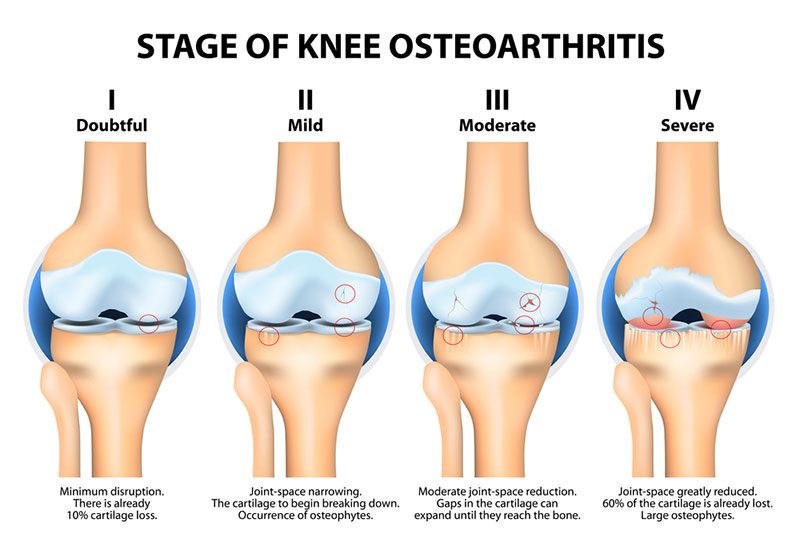Knee injuries are a common occurrence, especially among athletes and individuals engaged in physically demanding activities. One of the most serious and debilitating knee injuries is a tear of the anterior cruciate ligament (ACL), which can lead to long-term joint damage if not properly treated. Recent research has revealed that earlier surgical intervention for ACL tears may play a critical role in reducing the risk of developing knee osteoarthritis (OA) later in life, providing new insights into the timing of treatment and its impact on knee health.
In this article, we’ll explore the link between ACL injuries and osteoarthritis, the benefits of early ACL surgery, and what this means for long-term joint health.

The Relationship Between ACL Injuries and Knee Osteoarthritis
The ACL is one of the key ligaments in the knee joint, responsible for stabilizing the knee during activities that involve sudden stops, twists, or pivots. When an ACL tear occurs, it significantly compromises the stability of the knee, often resulting in swelling, pain, and difficulty with movement. While some ACL injuries can be managed with physical therapy and rehabilitation, many patients require surgical reconstruction to restore knee function and prevent further damage.
One of the most concerning long-term consequences of an ACL tear is the increased risk of developing knee osteoarthritis, a degenerative joint disease characterized by the breakdown of cartilage in the knee. OA causes pain, stiffness, and decreased mobility, making it a major cause of disability among older adults. Studies have shown that individuals with a history of ACL injuries are at a higher risk of developing OA, even if the injury is treated. However, recent research suggests that the timing of ACL surgery may significantly influence the likelihood of developing osteoarthritis.
New Research Highlights Benefits of Early ACL Surgery
A study published in The American Journal of Sports Medicine has provided compelling evidence that early surgical intervention for ACL tears may reduce the risk of developing knee osteoarthritis. The study followed a group of patients who had suffered ACL injuries and underwent either early ACL reconstruction surgery or delayed surgery. Over a period of several years, researchers assessed the development of OA symptoms and found that those who had undergone earlier surgery were less likely to show signs of osteoarthritis compared to those who delayed surgery.
According to the researchers, early ACL surgery helps restore knee stability and reduces the risk of additional damage to the joint structures, such as the meniscus and cartilage, which are critical to maintaining knee health. Delayed surgery, on the other hand, often results in prolonged periods of joint instability, increasing the likelihood of further injuries and subsequent joint degeneration.
Why Early Surgery Reduces Osteoarthritis Risk
The connection between early ACL surgery and a lower risk of osteoarthritis lies in the ability to protect the knee from secondary damage. When the ACL is torn, the knee becomes unstable, which can lead to a cascade of negative effects. Without proper stability, the meniscus—a cartilage structure that cushions the knee—becomes vulnerable to injury. Damage to the meniscus accelerates the wear and tear of the joint cartilage, a primary contributor to the development of osteoarthritis.
In cases where surgery is delayed, patients may continue to experience episodes of knee instability, putting more stress on the joint with every step. Even with non-surgical treatments like bracing or physical therapy, the underlying instability may persist, leading to long-term damage that increases the risk of OA. Early surgery helps to stabilize the knee sooner, reducing the chances of these secondary injuries.
Long-Term Benefits of ACL Reconstruction
The benefits of early ACL surgery extend beyond the reduction of osteoarthritis risk. By stabilizing the knee joint, ACL reconstruction allows patients to return to their normal activities more quickly and with greater confidence. Athletes, in particular, benefit from the improved stability and function of the knee, allowing them to resume high-level performance without the fear of reinjury.
Additionally, ACL reconstruction helps prevent further damage to other parts of the knee, such as the cartilage and meniscus, which are essential to joint health. This preservation of joint integrity plays a crucial role in maintaining knee function and delaying or preventing the onset of osteoarthritis.
Considerations for ACL Surgery Timing
While the benefits of early ACL surgery are clear, the decision to undergo surgery is a complex one that should be made in consultation with a healthcare professional. Not all ACL injuries require surgical intervention, and the timing of surgery may depend on several factors, including the severity of the tear, the patient’s activity level, and their overall health.


